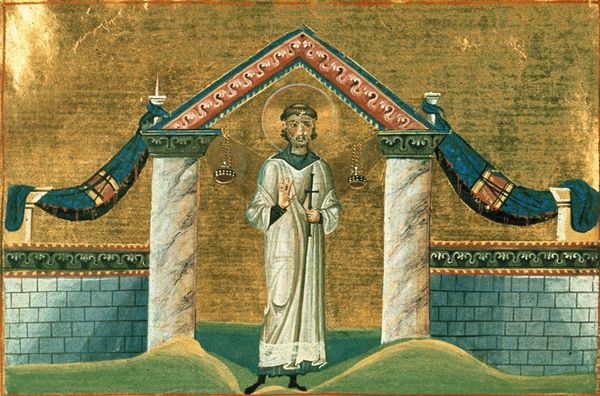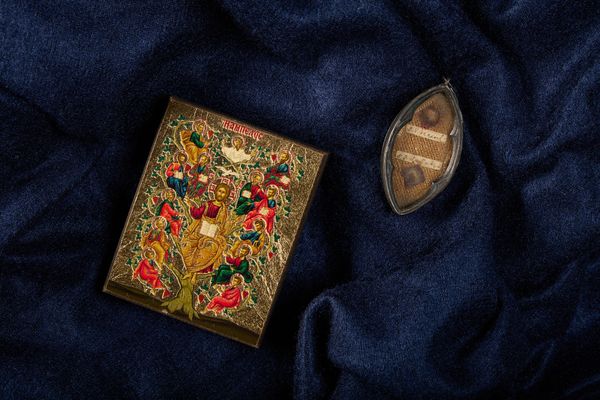We know surprisingly much about his life, at least about his death thanks to St. Augustine of Hippo, St. Leo the Great, and the Spanish poet Prudentius, who composed St. Vincent’s martyrdom in his long poem Peristephanon, about one hundred years after the fact.
St. Vincent was deacon to Valerius, the bishop of Saragossa in northeastern Spain. St. Vincent was wholly devoted to his bishop. So when the Christian-hating Roman governor Dacian forbade the practice of Christianity and made worship of the Roman gods mandatory, both St. Vincent and his bishop were promptly jailed. The bishop was only banished but St. Vincent was spared no torment.
Prudentius spares no details in his recounting the suffering of Saint Vincent. St. Vincent was variously racked, roasted on a giant iron gridiron, with salt then rubbed into the burning flesh, ripped open with massive iron hooks, pressed between heated iron plates and limbs distended one by one. St. Vincent simply wouldn’t die. So he was thrown into a dank prison cell where his broken body landed on a pile of shattered pottery which reopened his many wounds. In this dungeon, St. Vincent was starved. But he still hung on to life and his faith.
The sociopathic Dacian relented in the nonstop tortures and allowed the Christian faithful to visit him and bathe his wounds. However, since St. Vincent was at this point moribund, his visitors also dipped cloths in his blood to be taken away as relics.
St. Vincent finally gave up the ghost. Almost instantly his fame spread throughout Spain and Western Europe. St. Augustine, one of the greatest Doctors of the Church, preached homilies on him, one of which made it into the Office of Readings.
Such savagery was being vented upon the martyr’s body while such serenity issued from his lips, such harsh cruelties were being inflicted on his limbs while such assurance rang out in his words, that we should think that, by some miracle, as St. Vincent suffered, one person was speaking while another was being tortured. And this, my brothers, was true: it was really the truth: another person was speaking. Christ in the Gospel promised this to those who were to be his witnesses, to those whom he was preparing for contests of this kind.
Credits:
Discriptions of saints lives and biographies have been excerpted, summarized, or compiled from
Franciscan Media,
CatholicSaints.Info,
Catholic Online, and
Wikipedia.

